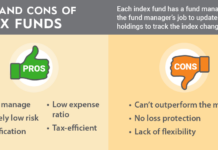Agriculture investments, provide an opportunity to invest in food production.
SWOT Analysis
Strengths:
- Food is a key component of human life, in the next decades there will be more human life, and we will need more food. According to the Savills report, Two billion people means we need to increase our output by 70%.
- Food prices are correlated to inflation. Yield from your agricultural investment will match the rises in the cost of living. However, this needs to be considered in the context of the currency and location your expenses and the currency and location of your agricultural investment. (Costs to agriculture can also rise due to inflation).
- There are tax benefits to investing in agriculture in most countries.
Weaknesses:
- Government Subsidies make predictions on the profitability of agricultural products difficult. For Example: If France decides to help it’s vineyards this puts them at a competitive advantage over other vineyards.
- There have been scams related to agriculture investments before. Example: Sustainable Agroenergy plc
- Active investments in farming, where the hands-on approach is applied, require a certain level of skill and know how. Such a skill is both academic and practical in nature. This makes investing directly in farming available only to a small set of people.
Opportunities
- The average age of the American farmer in 2016 is 58.3 years and the average age of British farmers is 59, what this means is that there will be fewer farmers in the future. This could lead to lower production and more demand for automation. Potentially making investments in agriculture today profitable in the future.
- The agricultural investment universe is wide. As the success of an agricultural operation requires many things working in concert: agri-specialists, tractors, fertiliser, seeds, land, marketing, transport and finance to name a few. What this means is that if you would like to be part of the agri-industry you do not necessarily need to be a farmer. If you would like to be a passive investor, there are firms quoted in the stock markets which are directly or indirectly involved in the agriculture investing. To name a few:
- Potash Corporation of Saskatchewan (POT).
- Deere & Company (tractors)
- As oil production falls possibly due to EROEI. Demand for biofuels could increase in the future, making agricultural land more valuable. Although biofuels still require a lot of oil inputs.
- Africa is both an opportunity and a threat to agriculture. If managed well, Sub-Saharan Africa could become the breadbasket of the world. This has been tried in the past, but there were some spectacular failures such as the nationalised farms in South Africa.
- The demand for farmland is likely to keep rising because of the increase in populations. This increase is coming from nations which do not have arable farmland. To compensate for this these nations are buying farmland through their wealth funds. Countries such as China, Saudi Arabia, United Arab Emirates, Abu Dhabi, South Korea, and Qatar are participating in this agricultural land grab.Reuters estimates that these sovereign wealth funds will double their purchases by 2020 to around $5-$7 billion. This will result in farmland becoming more expensive. As the supply of arable farmland is bought up, it’s value will increase due to scarcity.
- An agricultural investment could give you booth financial security and food security.
Threats
- Pests & Invasive Species destroy crops.
- Direct theft of produce.
- Employee theft. Employees could claim a certain yield from a farm while the real one would be higher, pocketing the difference.
- Increased taxes.
- Nationalisation of agricultural land.
- High oil prices (all the inputs from agriculture come from oil)
- Dependence on GMOs. GMO seeds have to be bought every year. This centralises seed production. If this centralised system fails, there will be no seeds to plant next spring.
- Water requirements and drought. Some countries have experienced unprecedented climate changes. El Nino and Global Warming have been presented as the most likely causes of this.
- The prices of farm products are subject to fluctuation because demand and supply fluctuate.
- When you buy an agricultural stock or company, you are buying the balance sheet and not only the agricultural asset. What this means is that you expose yourself to the profitability of a company and not the overall trend in the agricultural investment space.
- Climate change could make farmland in parts of the world unproductive.
- Bees and insects which support agriculture through pollination are dying. Recent reports indicate that bee populations have declined because of certain pesticides being used. The bees are a crucial element in agriculture and killing the bees is killing agriculture.
- egislation regarding GMOs, Pesticides, Agri Taxes, Foreign ownership of agricultural land can change, and this could have an impact on both the return of capital and the return on capital.
Investing Options
Investment options
List of interviews with investment providers in the agricultural and forestry sector.
Individual stocks:
ETFs
- The Market Vectors Agribusiness ETF (MOO)
- The PowerShares Global Agriculture Portfolio (PAGG)
- The PowerShares DB Agriculture Fund (DBA)
Further Research:
- Farmland: a Growing Investment Option
- China to invest $450 billion modernizing agriculture by 2020
- US farmland prices set course for third year of decline
- Four billion people face severe water scarcity, new research finds











